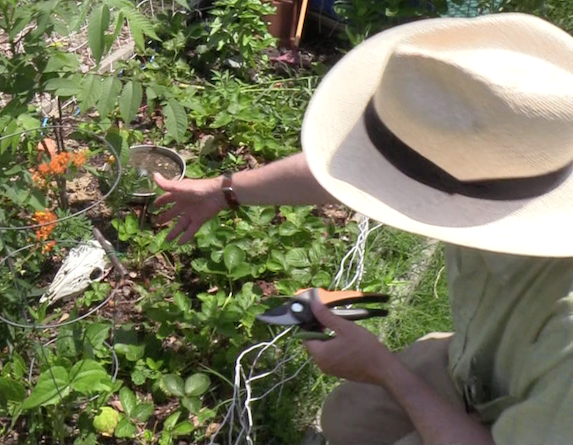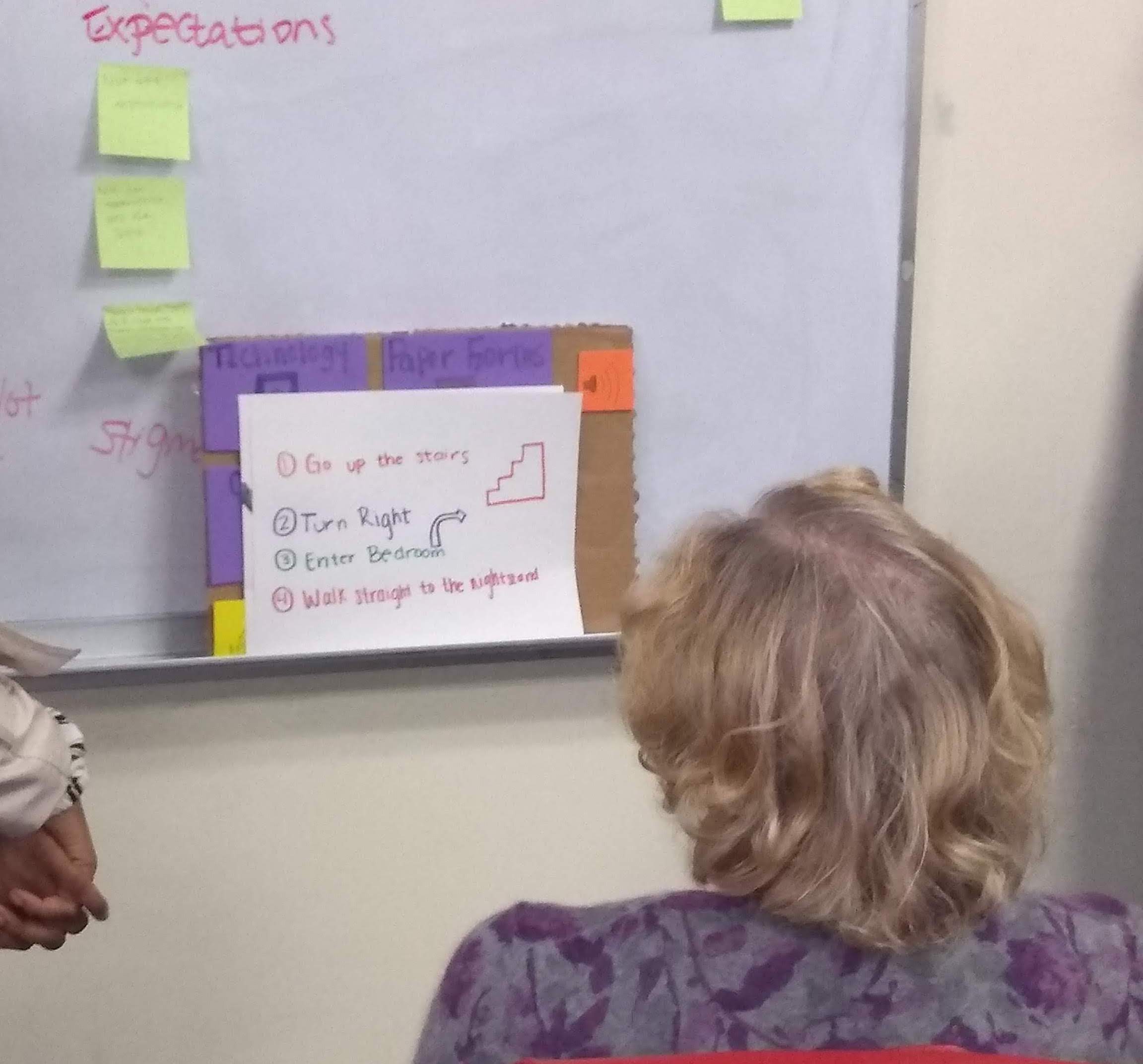Amanda Lazar
Research
In our work, we examine the ways researchers and designers envision populations that are often marginalized. We design and build novel interactive systems that push the boundaries of current conceptions of vulnerability, disability, and wellness, and conduct long-term mixed-method evaluations of these technologies. Much of this work focuses on understanding and designing for older individuals, particularly individuals with cognitive impairments. Some of our current projects are described below. Feel free to reach out to us to learn more at lazarlab@umd.edu.Accessibility of Technology for People With Dementia
This project focuses on understanding the current state of technologies developed for the purpose of engaging people with dementia in meaningful activities. The study involves interviews of practitioners who work directly with people with dementia to support meaningful engagement, people with dementia who use technology regularly, and caregivers. The goal of this study is to understand how much the available technologies are actually being used by people with dementia, the barriers to long-term use of these technologies, and the needs of people with dementia. Findings from this study will inform the design of technologies that better support the engagement of people with dementia in meaningful activities. Project led by Emma Dixon (PhD student in the iSchool).
This work is funded by grant 90REGE0008 from the U.S. Admin. for Community Living, Dept. of Health & Human Services.
This work is funded by grant 90REGE0008 from the U.S. Admin. for Community Living, Dept. of Health & Human Services.
Knowledge Sharing between Experts and Novices

There are many activities and hobbies where people gain valuable skills throughout their life- such as woodworking, knitting, and gardening. The long term objective of this project is to understanding how to design technology, specifically Extended Reality systems (e.g. Virtual Reality on Oculus Rift or Mixed Reality Hololens ), for sharing embodied-skills in a multi-generational setting. Another goal of this project is to connect people with meaningful hobby experiences they might not be able to fully access to due to disabilities, space, time, or other constraints. We are currently studying this in the context of gardening, an activity practised by an estimated 42 million US households for a variety of economic, social, and health motivations across age groups. We are conducting participant observation studies and interviews to understand the role of technology in this space and how experienced older gardeners can help guide younger novices in the garden remotely. Project led by Teja Maddali (PhD student in Computer Science).
The Future of Smart Homes and Internet of Things Technology

Smart home technologies have long been touted as useful to support aging in place for older adults. Despite technological advances, the adoption and acceptance of these technologies by older adults is low. This research takes a different approach towards designing aging in place technologies by integrating maker technology to harness the collective experience of older retirees to construct objects they find valuable. As the preliminary step, we aim to identify older adults’ underlying perceptions related to adoption and abandonment of IoT technologies. Based on these findings we will design a toolkit to create and customize IoT. We will support novice older retirees to create their own IoT devices via an abstracted, modular electronic toolkit. We aim to assess older adults’ interest in pervasive computing while empowering them to design and create their own aging in place technology.
As part of this, we are conducting a co-design study with people with dementia, who are rarely involved in the design process. In this project, we approach the design of IoT technology for people with dementia with a human rights-based perspective. We are currently conducting a series of intergenerational design workshops including people with dementia and younger adults, together envisioning and building smart home technologies in the context of cohousing. Projects led by Alisha Pradhan (PhD student in the iSchool).
This work is funded by NSF under award #1816145
As part of this, we are conducting a co-design study with people with dementia, who are rarely involved in the design process. In this project, we approach the design of IoT technology for people with dementia with a human rights-based perspective. We are currently conducting a series of intergenerational design workshops including people with dementia and younger adults, together envisioning and building smart home technologies in the context of cohousing. Projects led by Alisha Pradhan (PhD student in the iSchool).
This work is funded by NSF under award #1816145